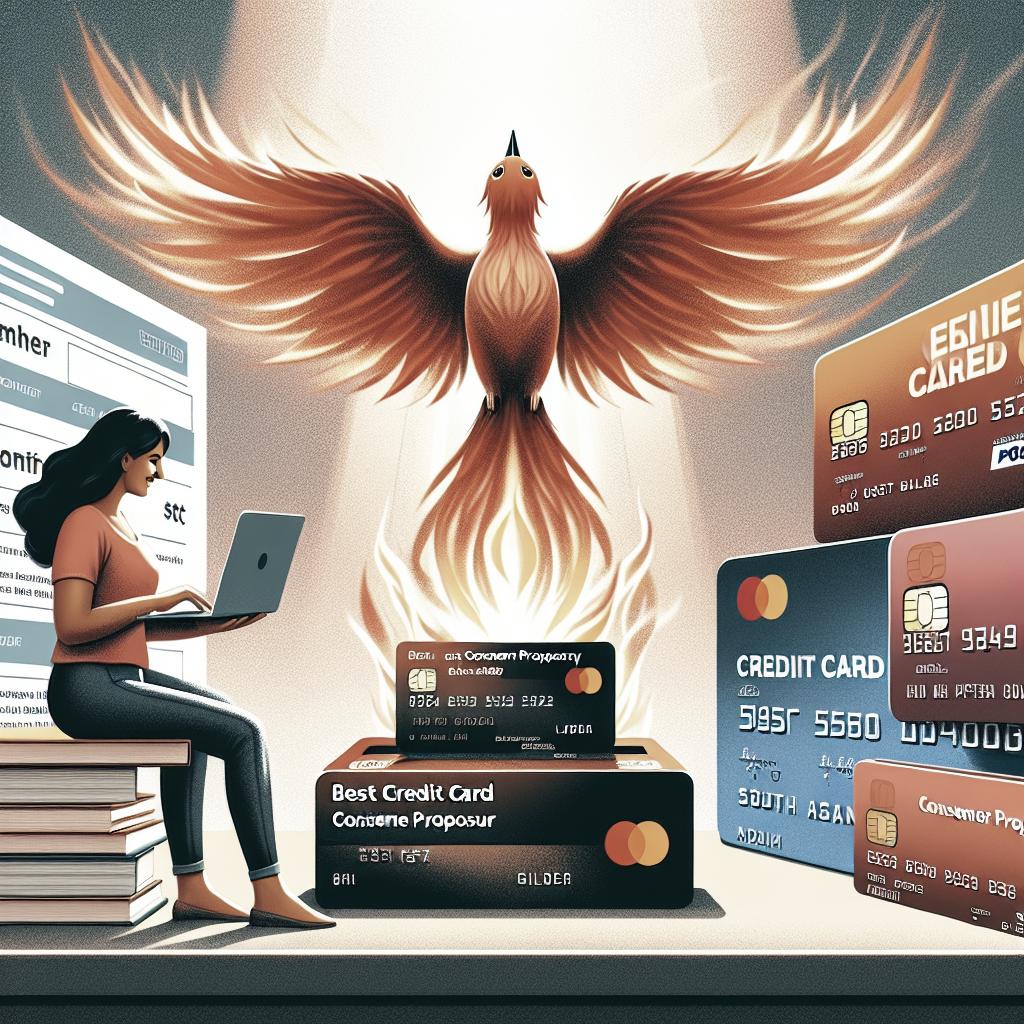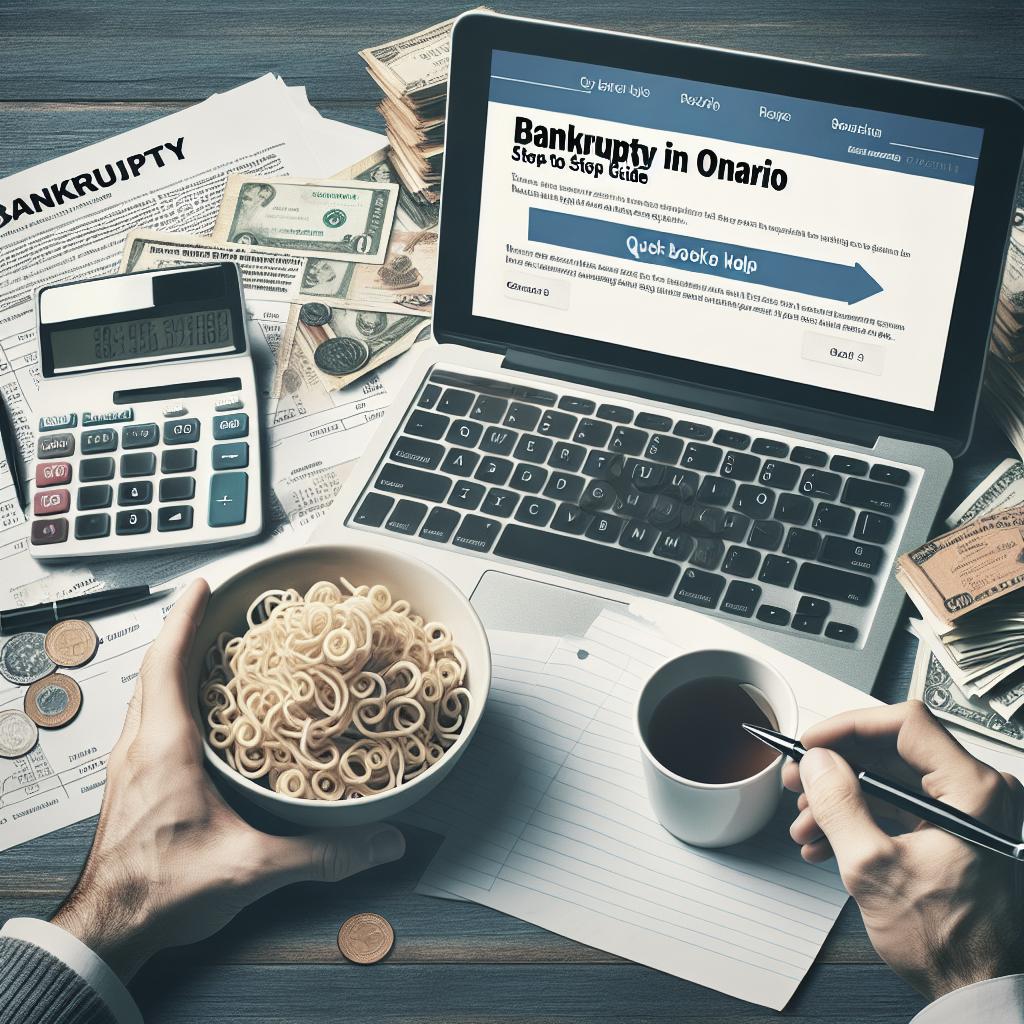“`html
Navigating your financial life after a consumer proposal can be daunting, especially when it comes to managing credit. Getting a credit card post-bankruptcy can be a crucial step in rebuilding your credit score, but it comes with its own set of challenges. This article will guide you through the key considerations of obtaining a credit card after a consumer proposal, the pros and cons, and strategies for improving your creditworthiness. From selecting the right card to developing good credit habits, we aim to provide comprehensive insights to help you make informed decisions.
Should I get a credit card after bankruptcy?
The idea of getting a credit card after bankruptcy might sound counterintuitive, but it’s actually a practical move. A credit card can aid in re-establishing your credit score if used responsibly. Secured credit cards are often an ideal starting point for individuals recovering from bankruptcy. These cards require a cash deposit that serves as your credit limit, mitigating the risk to lenders while giving you a tool to build credit.
However, jumping straight into acquiring a credit card should be a well-considered decision. Assess your current financial situation, make sure you have a steady income, and only proceed if you believe you can manage the responsibilities of a credit card. It’s a stepping stone towards financial recovery, but rushing in without a plan can lead you back into trouble.
Beware the disadvantages of credit cards
While credit cards can be useful for rebuilding credit, they also come with potential pitfalls. High interest rates are a significant drawback, especially if you carry a balance month to month. This can quickly snowball into a larger debt that becomes unmanageable. Additionally, the fees associated with credit cards, such as late payment fees, over-limit fees, and annual fees, can add up if not managed properly.
Another disadvantage is the risk of falling into old spending habits. If overspending was an issue that led to your consumer proposal, it’s crucial to change those habits before obtaining a new credit card. Mismanagement of new credit can reopen the financial wounds you’re trying to heal and make your path to recovery even longer.
Which credit card will help me improve my credit score?
When choosing a credit card to improve your credit score after a consumer proposal, secured credit cards are your best bet. Secured cards are easier to acquire because they require a deposit, which reduces the risk for the issuing bank. Some top options include the Capital One Secured Mastercard, the Discover it Secured Card, and the OpenSky Secured Visa.
Another option, although riskier, is to apply for a low-limit, unsecured credit card designed for individuals with bad credit. These cards might come with higher interest rates and fees, but they don’t require a deposit. Examples include the Milestone Gold Mastercard and the Indigo Platinum Mastercard. Before committing, make sure to read the terms carefully and choose a card that best suits your financial capabilities and credit rehabilitation goals.
How does a credit card rebuild credit?
A credit card helps rebuild your credit by enabling consistent, positive financial behavior. Every time you make a timely payment, it gets reported to the credit bureaus, gradually improving your credit score. Utilizing your credit card responsibly, such as keeping your balance low and paying off the full amount each month, shows lenders that you can manage credit effectively.
Moreover, a credit card contributes to your credit mix, which accounts for 10% of your credit score. Diversifying your credit portfolio with different types of credit, like a credit card and a personal loan, can enhance your creditworthiness. Just make sure you’re able to handle any form of credit you take on without falling behind.
Credit card strategies that look good on your credit report
One beneficial strategy is to maintain a low credit utilization ratio. This means using only a small percentage of your available credit, ideally less than 30%. For example, if your credit limit is $500, aim to keep your balance below $150. This demonstrates responsible credit management and positively influences your credit score.
Another strategy is to make more than the minimum payment whenever possible. While paying the minimum keeps you in good standing, reducing your balance faster shows a higher level of responsibility and helps save on interest fees. Setting up automatic payments can ensure that you never miss a due date, reflecting well on your credit report and avoiding late fees.
Good credit card habits for your finances
Establishing good credit card habits is essential for long-term financial health. One fundamental practice is to create and stick to a monthly budget. Allocate a specific amount of your income for credit card expenses and do not exceed it. This helps prevent overspending and ensures you can pay off your balance in full each month.
Familiarize yourself with your credit card’s terms and conditions, including interest rates, fees, and rewards. Knowing these details lets you use your card more effectively and avoid unexpected charges. Regularly monitoring your credit reports is also vital. This keeps you informed about your credit standing and helps you catch any errors or signs of fraud early, further protecting your financial status.
Similar Posts:
- How to Rebuild Your Credit Score After Bankruptcy
- Best Secured Credit Cards for Bad Credit
- 10 Tips for Managing Your Credit Card Wisely
Get A Personalized Debt Free Plan
Struggling with debt and unsure of where to start? A personalized debt-free plan can provide you with the guidelines needed to take control of your finances. Professional financial advisors can help you assess your situation, set achievable goals, and develop a strategy to eliminate your debt and build a secure financial future. Seek a reliable advisor or service to begin your journey towards financial stability today.
Lessons Learned
| Key Considerations | Details |
|---|---|
| Should I get a credit card after bankruptcy? | Assess your financial stability and consider secured credit cards for a manageable start. |
| Beware the disadvantages of credit cards | High interest rates and fees; risk of falling into old spending habits. |
| Which credit card will help me improve my credit score? | Secured cards are recommended, with some options including Capital One and Discover it Secured Card. |
| How does a credit card rebuild credit? | Timely payments, low balances, and a diversified credit portfolio aid in improving credit scores. |
| Credit card strategies that look good on your credit report | Maintain a low credit utilization ratio and make more than minimum payments. |
| Good credit card habits for your finances | Create a budget, understand card terms, and regularly review your credit reports. |
“`


